Year 7 IB MYP Community Day/ Project
Home › Forums › Inquiry and resource design › Year 7 IB MYP Community Day/ Project
Tagged: IB MYP
- This topic has 5 replies, 4 voices, and was last updated 9 months, 2 weeks ago by
 Ruth.
Ruth.
-
AuthorPosts
-
9th October 2020 at 1:26 pm #22291
I recently started reading Neil Postman’s The End of Education: Redefining the Value of School. In it he writes:
Without a transcendent and honourable purpose schooling must reach its finish, and the sooner we are done with it the better. With such a purpose, schooling becomes the central institution through which the young may find reasons for continuing to educate themselves.
It was with this in mind that I entered into a discussion with our MYP Coordinator about how we might approach MYP Community Day (12 October 2020) during these interesting times.
MYP Community Day is, more broadly, part of the MYP Community Project, which encourages students to explore their right and responsibility to implement service as action in the community through a cycle of inquiry, action and reflection.
We chose as the theme of MYP Community Day 2020 Thinking Globally and Acting Locally: Embodying the IB Learner Profile.
The IB learner profile (see below) is central to all IB programmes, which aim to “develop internationally minded people who, recognizing their common humanity and shared guardianship of the planet, help to create a better and more peaceful world”. Embodying the 10 attributes of the IB learner profile leads individuals and groups to become more “responsible members of local, national and global communities”.
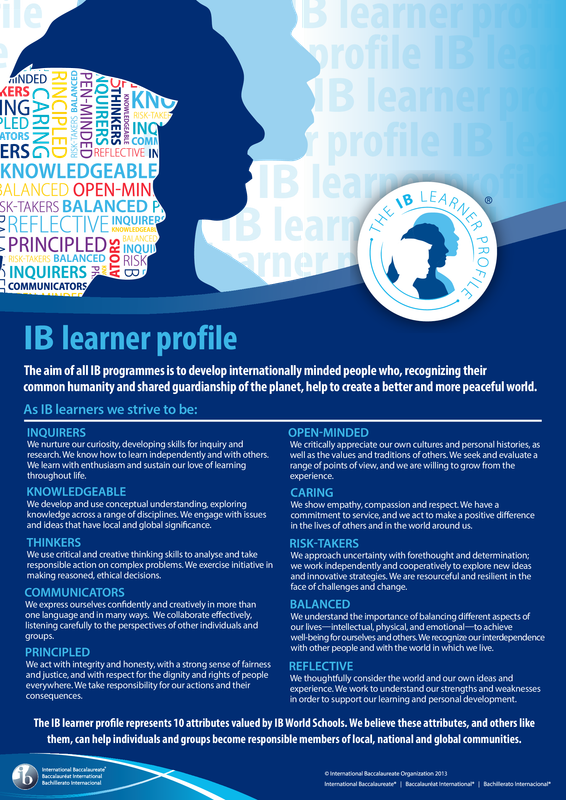
This led to the following line of thought…
A community is the stories that it tells.
Our stories are deeply personal and precious, but they also weave together to form a tapestry that is breath-taking in its complexity and marvellous to behold.
Our stories are shaped by events, but our stories also shape events. For better or worse, we are living through an extraordinary event – a global pandemic that is shaping the story of every person on our shared planet. This event, in turn, demands a response, both personal and communal.
An effective response requires perspective, for which, this year, we turn to the United Nations Sustainable Development Goals.
October is International School Libraries Month. The theme, appropriately, is Finding Your Way to Good Health and Well-Being, which is based on the United Nations Sustainable Development Goal 3 – Good Health and Well-Being. As the IB learner profile reminds us, we share guardianship of the planet, and a healthy planet depends on many things. The UN identifies 17 interrelated global concerns, all of which are made more challenging by the global pandemic.
Some of these challenges are easier to rise to locally than others, but all need to be met.
Which will we choose to act on?
Over the course of the day, then, pupils will share their own stories about lockdown, which will share features of each other’s stories. From the perspective of this emerging communal story, pupils will then share in the lockdown stories of children from communities very different to their own.
Lockdown does not last forever, though, and we emerge from lockdown into a world that is only strangely familiar, and one that requires our urgent attention.
Pupils will, therefore, focus their attention through The Pandemic is A Portal – an extraordinary short film based on Arundhati Roy’s essay in the Financial Times – which dares us to view the pandemic as a portal through which to enter a new and better world, a world in which all of the Sustainable Development Goals have been met. Pupils will then channel this focused attention into their posters, titled Think global, act local: improving life in our community after Coronavirus.
Meaningful learning is not confined to the classroom, and this is especially so with the MYP Community Day/ Project, so pupils will go on to explore ways in which to embody the IB learner profile in their various communities through active service, and reflect on those activities throughout the year as part of their Tutorial programme.
The day is divided into 3 sessions:
- 09:05 – 10:35
- 11:20 – 12:50
- 14:05 – 15:35
Between session 2 and 3, pupils will have an opportunity to visit the Life in Lockdown exhibition arranged by the Art department.
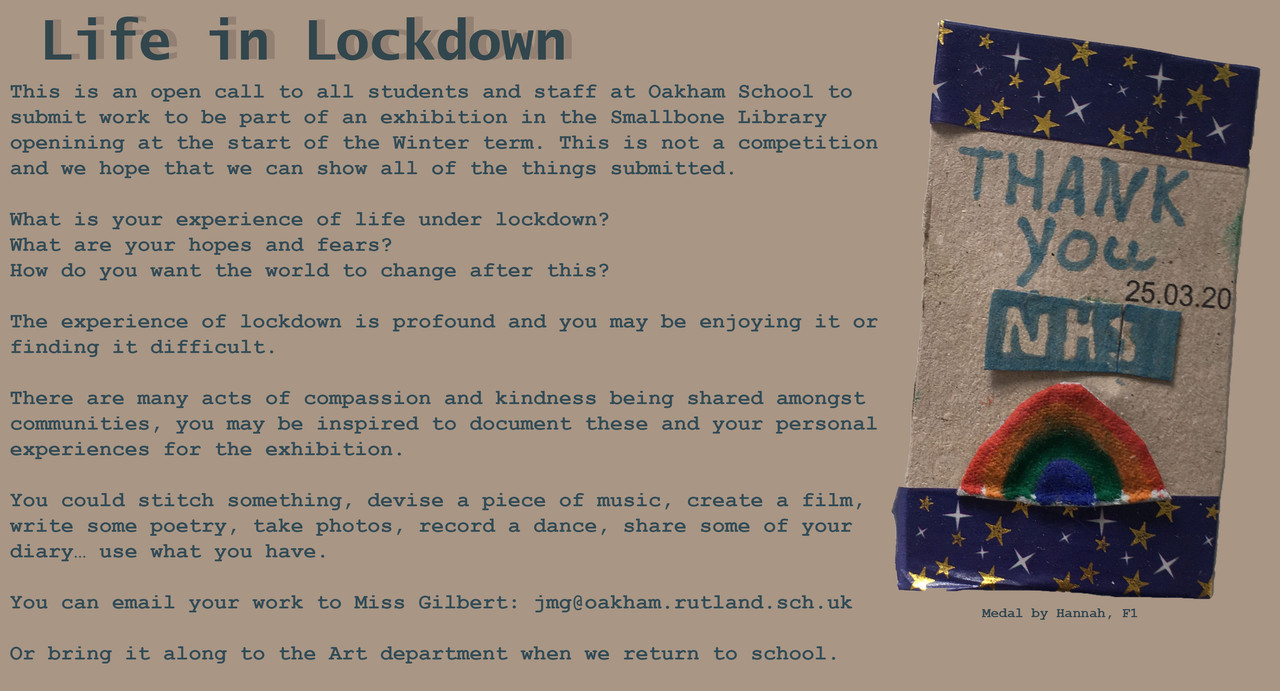
I/we will share lesson plans, resources and LibGuide in due course.
I will also return to Postman.
4th November 2020 at 10:15 am #27263Having had time to recover from the experience of running the Community Day, and having had the chance to look back at what we did and achieved, the benefits to the pupils of structuring the day as we did have become clear.
It was a long day, for them and us, with the structure constrained in some ways by the facilities available at certain times – we only had computer access for pupils during session 2, so any investigating had to happen then – and the creation of the posters took a lot longer than we had anticipated. However, it was very clear that pupils had appreciated being able to discuss their own experiences of lockdown; had opened their minds to what lockdown had meant to other children around the world; and had gained a real understanding of what we might want to change after the pandemic. The thoughtful and personal responses on display in their final posters were proof of careful consideration of their own role in the circles of community in which they live and the influence they might be able to have.
In terms of FOSIL resources, different worksheets – some individual and some group – stepped them through the day, and we made use of a LibGuide to provide them with the specific websites and videos we wanted them to use for different parts of the Investigate stage. The focus of investigation for this inquiry was very much on finding and using information from within sources rather than needing to locate that information for themselves. A further resource for the Reflect stage will allow pupils to continue to reflect on the ‘pledge’ they have made as the year progresses. This will be picked up through the tutorial programme, allowing the conversation to continue in smaller groups, and will hopefully lead on to further service as action.
4th November 2020 at 9:00 pm #27354Thanks, Lucy, your post reminded me that I had not yet shared the lesson plans, resources and LibGuide.
The LibGuide contains all the resources that the pupils used, as well as the lesson plans (including a printable version) and the accompanying PowerPoint presentation.
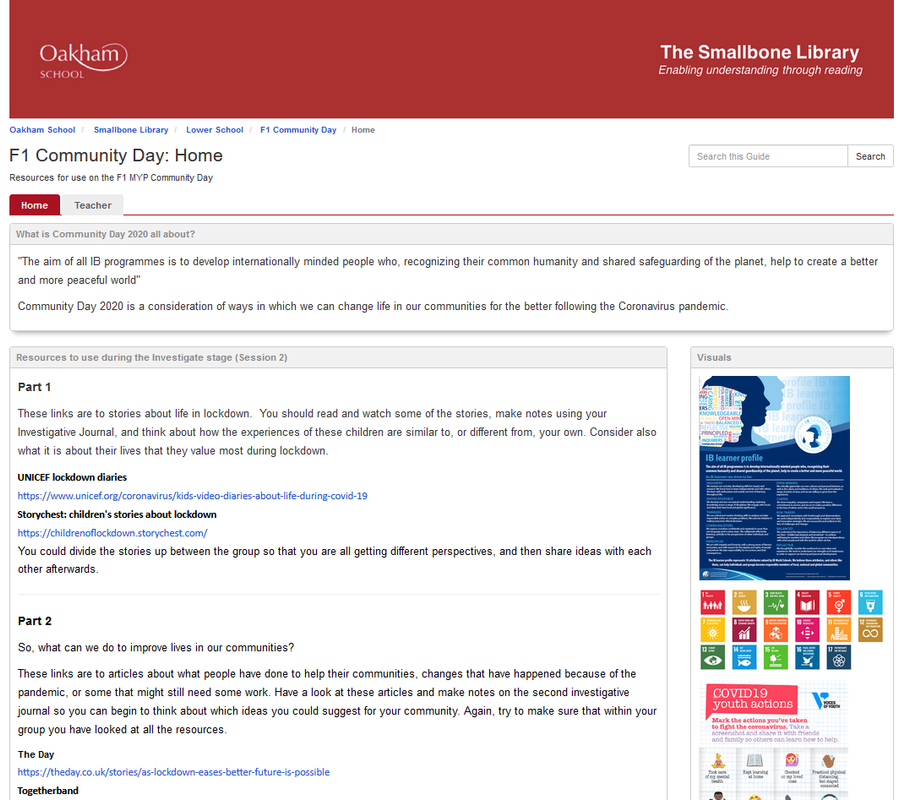
I have also included the PowerPoint presentation that Lucy produced following Community Day, which reflects how the day was structured around FOSIL and includes samples of the work that pupils produced. Please note that the photographs of pupils themselves may only be viewed and not used. Looking at the photographs in the presentation brings to mind the second part of the Galileo Educational Network’s description of inquiry, and the part that I need to turn my/ our attention to more closely:
Inquiry is based on the belief that understanding is constructed in the process of people working and conversing together as they pose and solve the problems, make discoveries and rigorously testing the discoveries that arise in the course of shared activity.
I will return to this (and Postman).
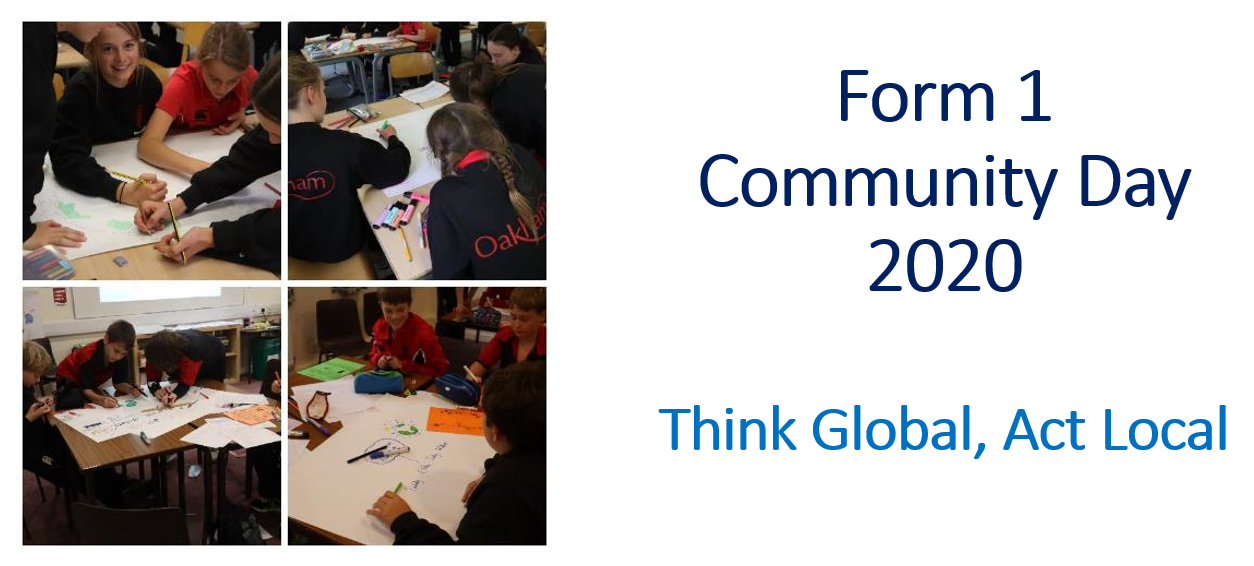 14th November 2020 at 2:11 pm #29055
14th November 2020 at 2:11 pm #29055Some brief (but, hopefully, important) observations on the very successful IB MYP Community Day. First of all, the very careful design of the day enabled us to achieve several goals which I think is remarkable: 1) We introduced the idea of Community to students as part of our MYP Community project development; 2) The particular focus of the project, however, was to explore the principles of MYP Service and Actions and provide the students with some practical ideas of actions that they could fulfill throughout the current academic year (thus addressing the requirement of the MYP programme) and, of course, 3) we also introduced students to the fundamental principles of inquiry and the structure of the FOSIL framework.
I believe the day provided a very good balance of written, reflective, visual and kinesthetic activities that kept the students engaged throughout. But it was the Express stage, however, where I was particularly impressed with the students and while the quality of their group posters was nothing short of outstanding, I also noted the process of group communication that was effectively shaping the outcome. This included sharing and delegating responsibility, debating ideas and brainstorming solutions.
It was a fantastic and productive day that was equally enjoyed by all and very effectively supported by FOSIL!
Attachments:
24th February 2021 at 12:12 pm #37009At the end of January, when all of our pupils in school were starting to tire a little of sitting in front of a screen all day during remote learning, it was decided that the planned Community Day for Year 8 – which would have run very much along the same lines as the Year 7 one – should take place as a virtual, off-timetable, off-screen (as far as possible) event. In addition, Year 7 were to have the opportunity to take part in another Community Day too, building on the wonderful work they had done in October. As mentioned by Dmitriy above as a real positive from October, careful design of the day would be of paramount importance, especially if we were striving to ensure that MYP Service in Action objectives were being met while trying to maintain the attention of around 150 pupils sitting in their own homes with all of the added distractions available to them.
Each year group needed a slightly different approach as they were starting from different points in their MYP journey:
- Year 8 were introduced last year to ideas of community, identifying those in need of help in our local communities and formulating ways to assist BUT they had no prior knowledge of the SDGs and, more importantly, no-one had heard of COVID-19 back then. In addition, they had not previously been asked to produce posters etc as their Community Day last year had focused only on the first four stages of the cycle, in the hope of returning to it later in the year, which, of course, school closure prevented.
- Year 7 had already completed lots of work on their experiences during lockdown, global problems and possible solutions and we really wanted them to have the opportunity to do things, to think back to the pledges for action they made in October and work on them. In the end, a deep covering of snow in Oakham on the day made going out rather tricky, and digging vegetable patches virtually impossible, but never mind, they had plenty of other options.
For each year group, we had an introductory assembly in the morning, with optional drop-in meetings during the day but for the most part pupils were left to work through the activities at their own pace, therefore directing their own learning and choosing what they wanted to do in the afternoon to take action in some way. They had been sent detailed instructions in advance of the day which, if printed off, allowed them to spend most of the day away from their computers. The LibGuides, which were created as a back-up for those who had not been able to print off material, or for whom clicking on links was easier than typing in URLs for videos, give an idea of the flavour and shape of the day (F1 LibGuide, F2 LibGuide).
One thing that the Community Days really allow us to focus on is the Reflect stage of the cycle as reflection is a big part of the MYP and of being an IB learner. The activities requiring pupils to think about problems in their communities help build understanding and empathy; they allow pupils to relate what they are reading to their own experiences; and therefore they allow time for a lot of personal reflection on what they have been reading, watching, learning about and ultimately doing. This will be really important for them going forward into Year 9 and a full, largely self-directed, Community Project. This reflection will also be ongoing throughout the year, and may lead to further inquiry work when we are back in school.
I will allow Dmitriy to comment further on how successful he feels these Community Days were, but here are some examples of the thoughtful work produced (see the LibGuides for the different action task options pupils were given):
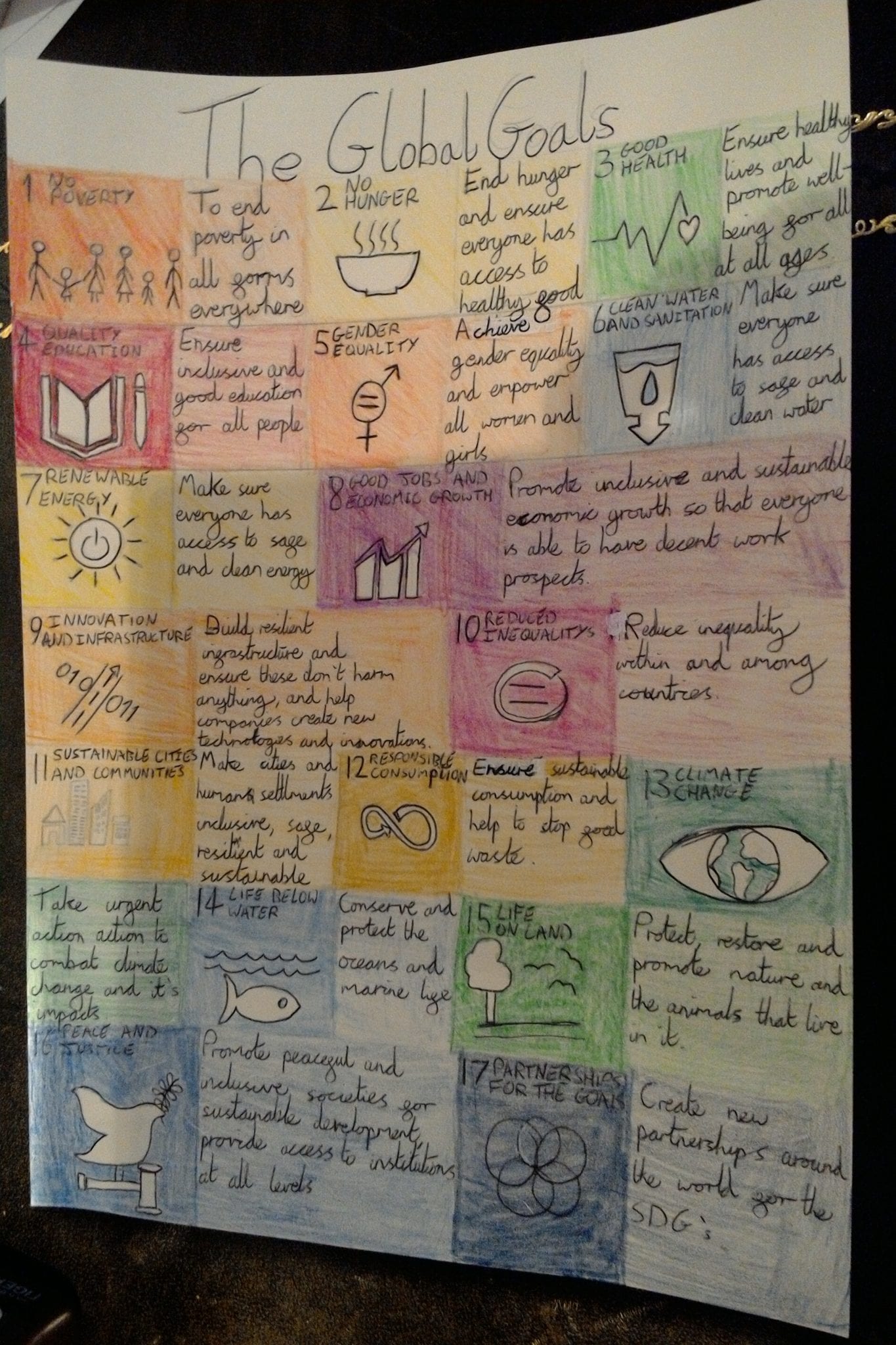
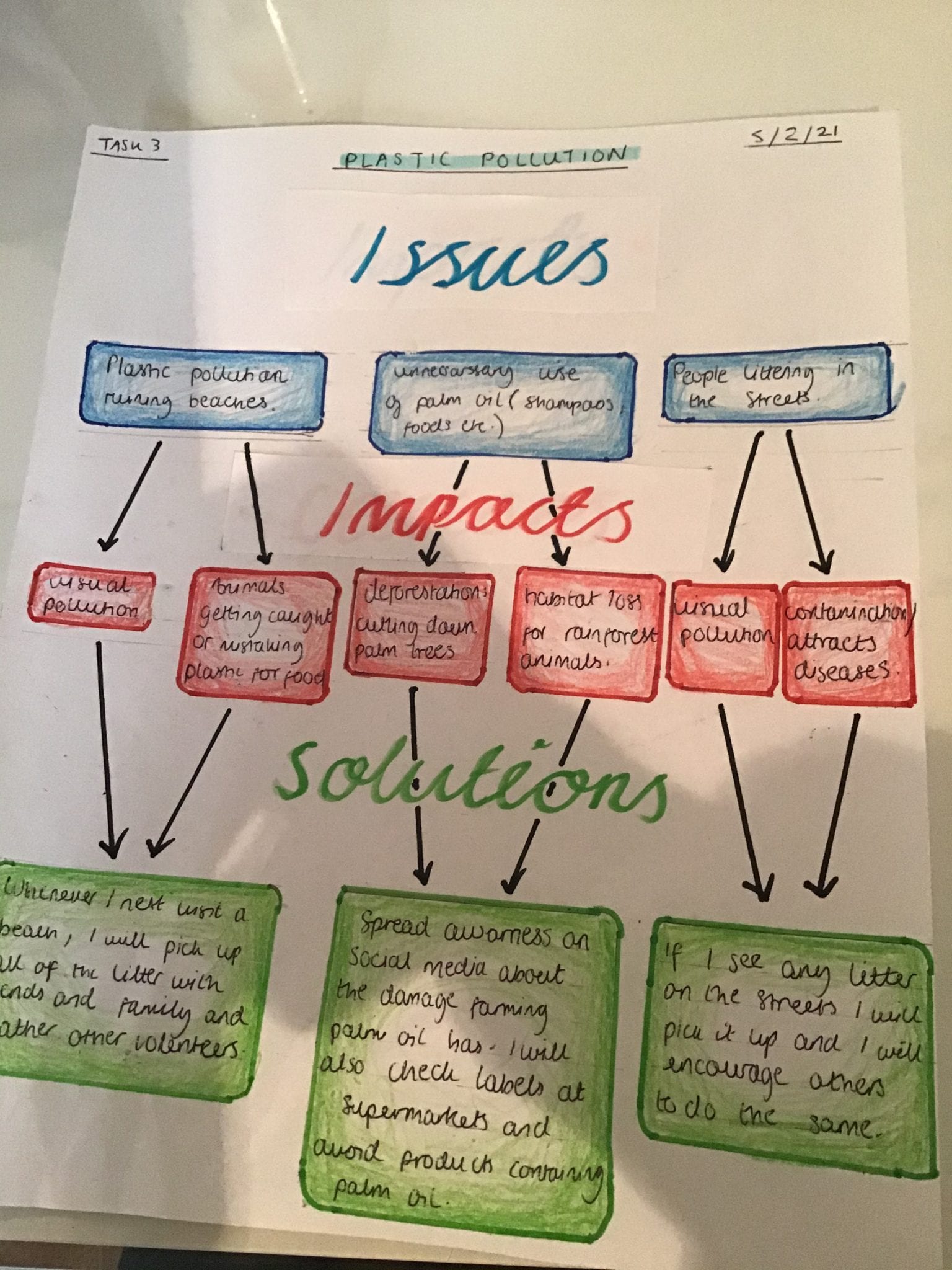
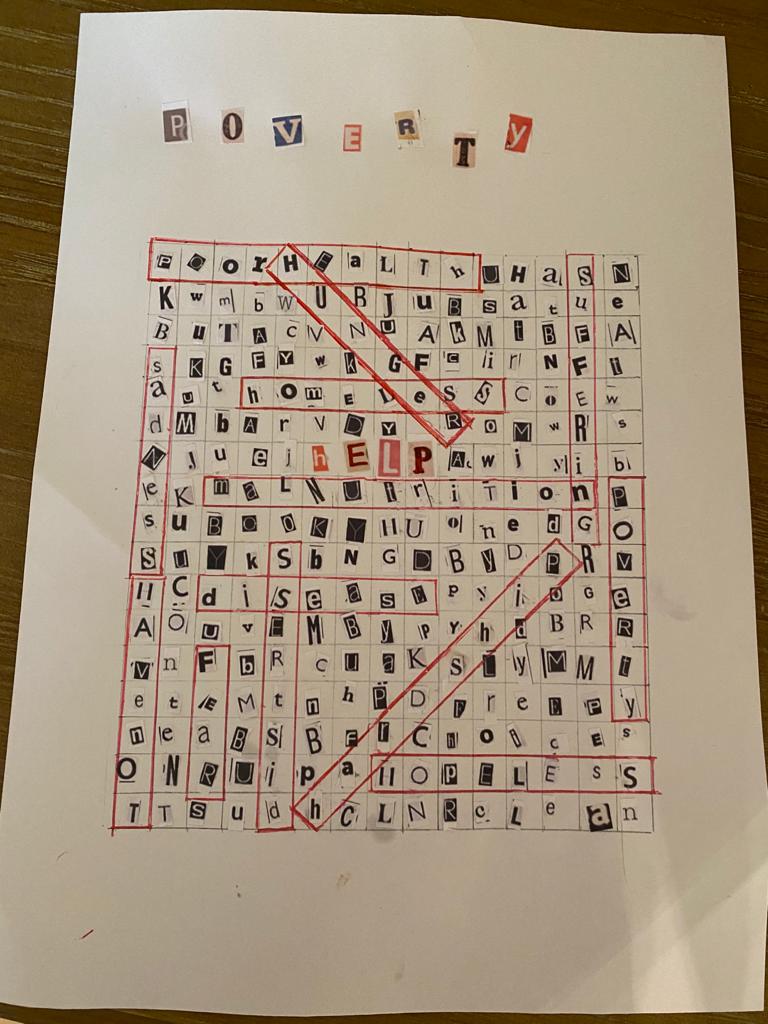
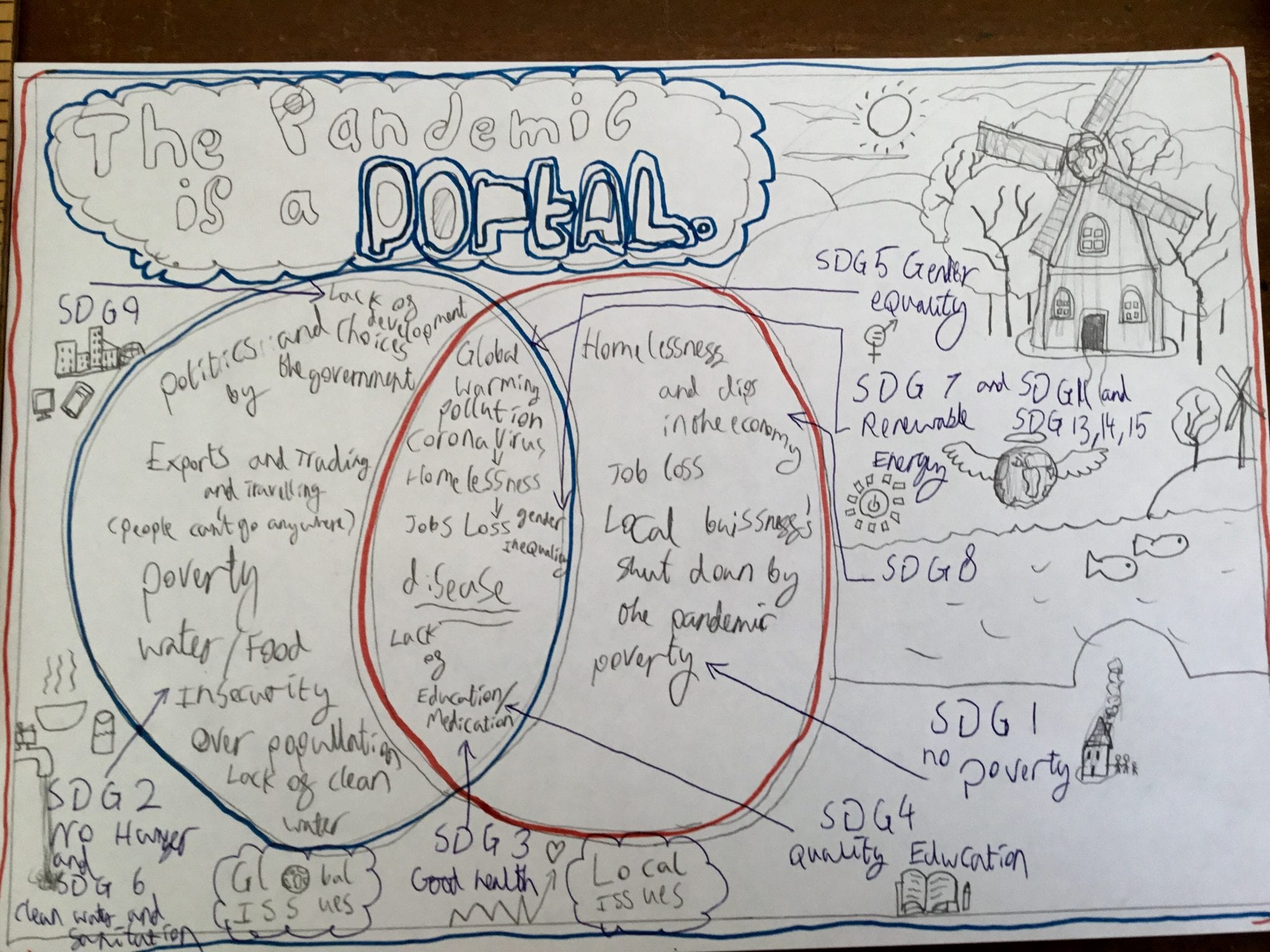
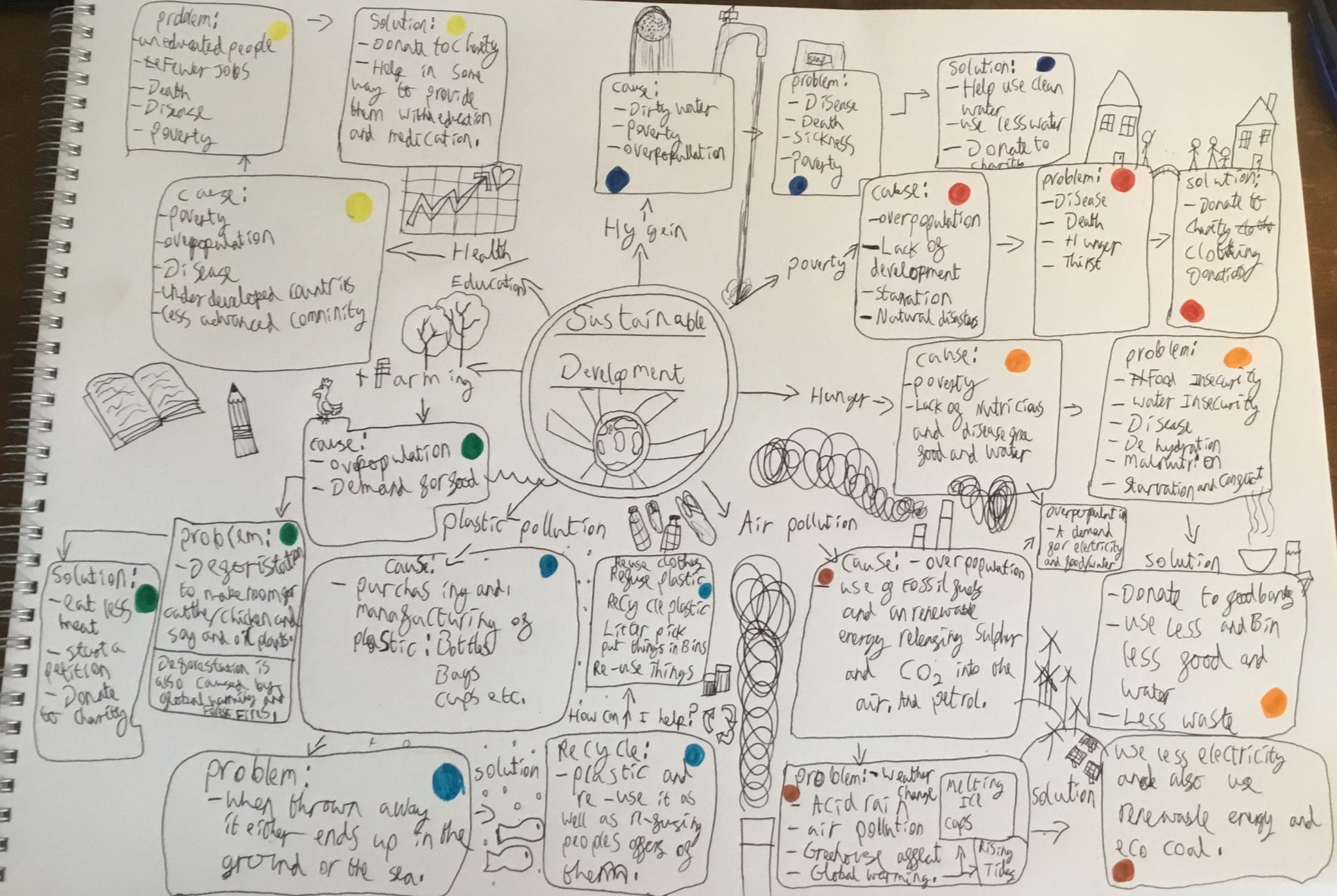
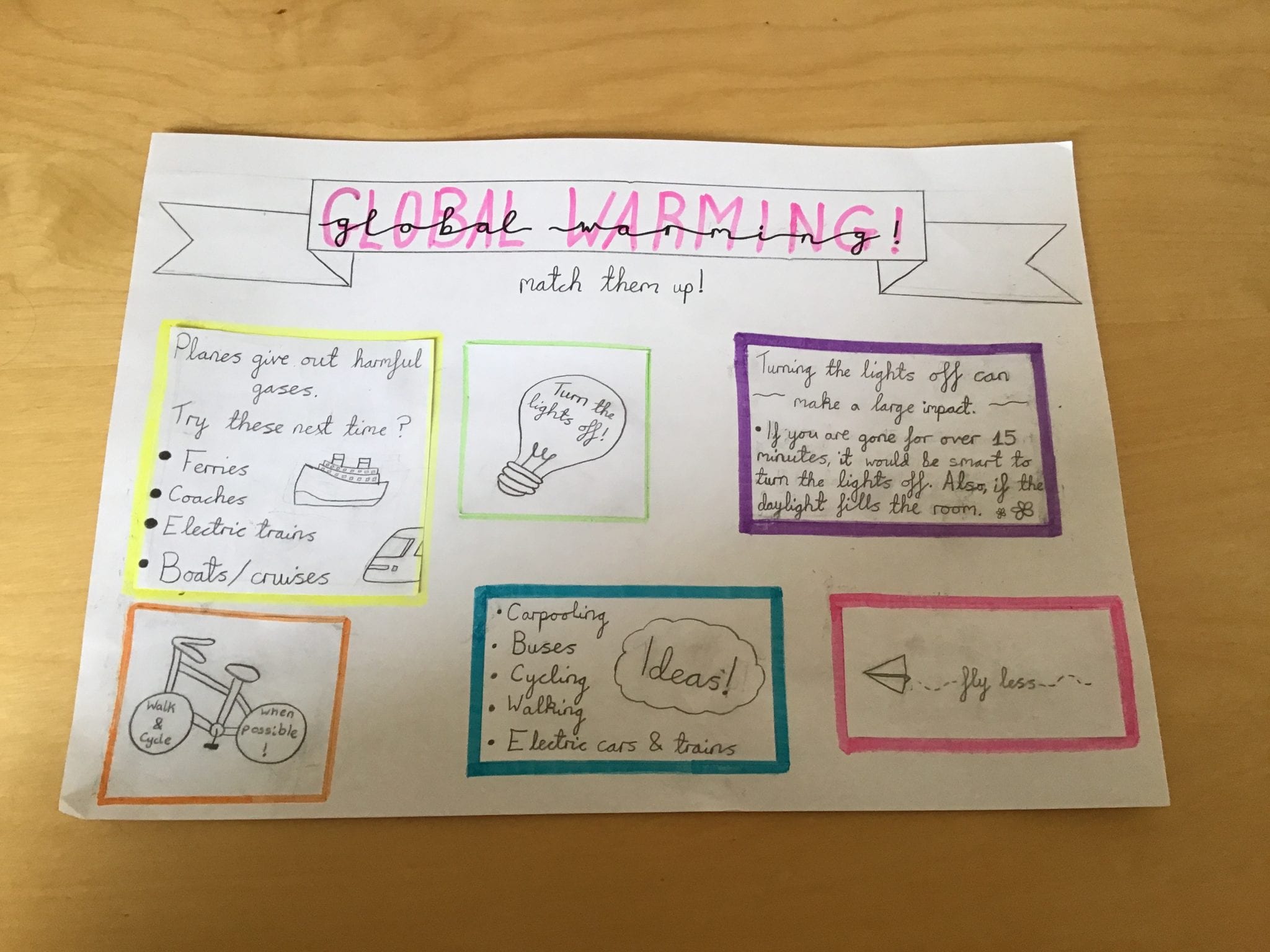 23rd May 2025 at 12:47 pm #86488
23rd May 2025 at 12:47 pm #86488I am wondering whether anyone has run the Community Project in Year 3 of MYP over a longer period of time (8 months) using FOSIL as a frame. We have been running the Community Project for a number of years with very mixed outcomes both in terms of the action the students carry out out the skills I feel they are learning. This is not part of my remit but I do have a very good relationship with the MYP co-coordinator and the Assistant Head involved and I would like to suggest the radical new approach of hanging the whole project on FOSIL rather than on the Investigate, Plan, Act Reflect phases of the IB but since we have to mark the work according to that scheme I would need to track back to this for staff.
I wondered if anyone else has done this already or is working on something similar at the moment?
Thanks,
Ruth
-
AuthorPosts
- You must be logged in to reply to this topic.






